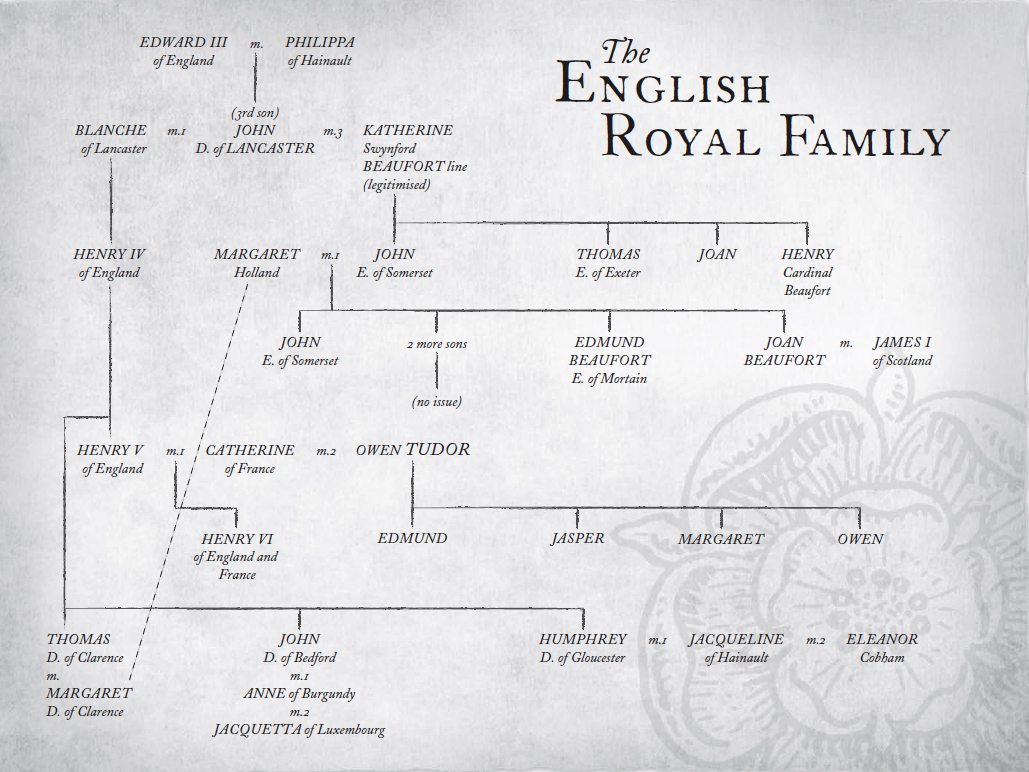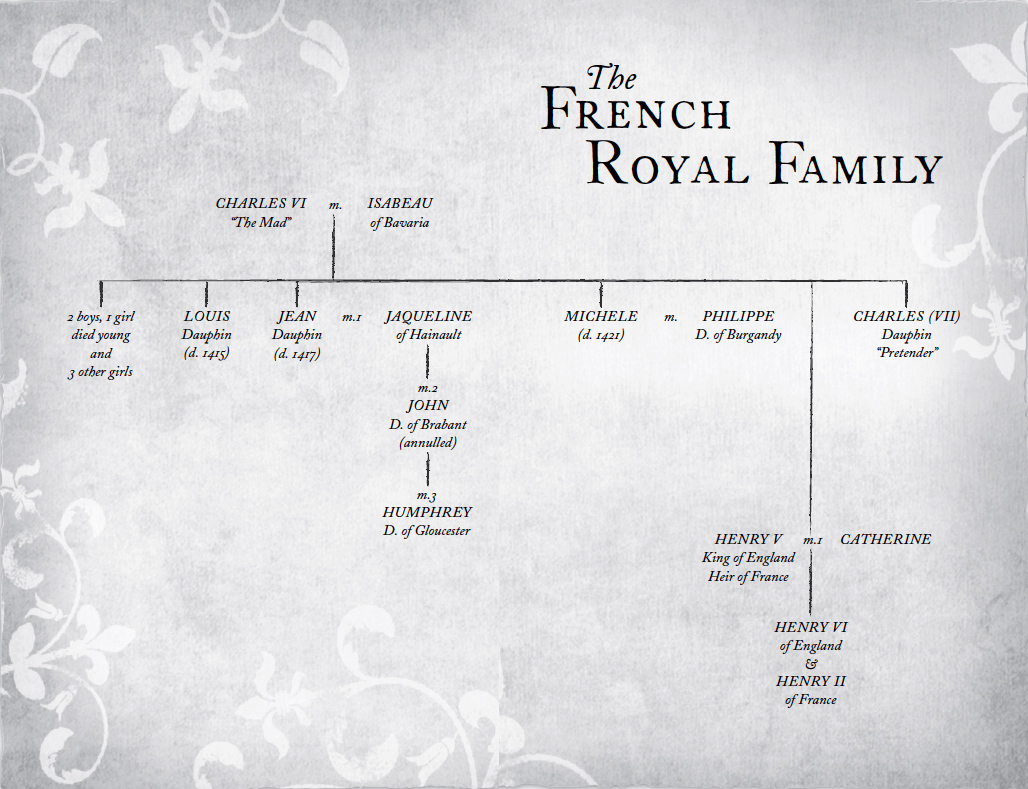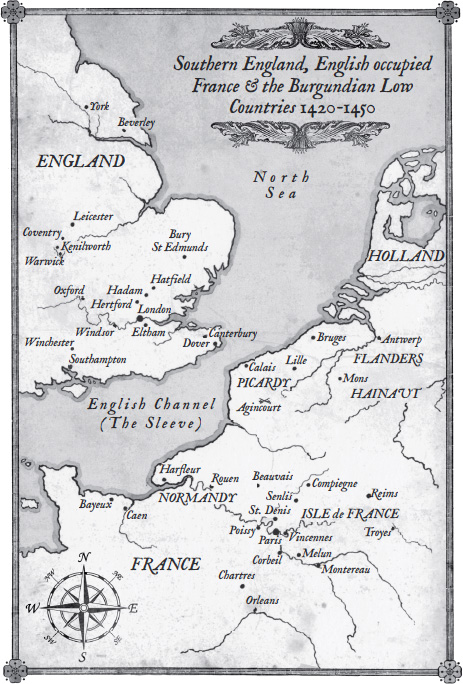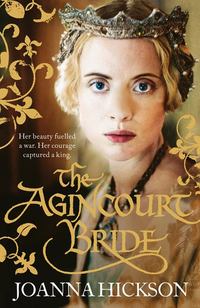
Полная версия
The Tudor Bride

JOANNA HICKSON
The Tudor Bride

Copyright
Published by HarperCollinsPublishers Ltd
1 London Bridge Street
London SE1 9GF
www.harpercollins.co.uk
First published in Great Britain by HarperCollinsPublishers Ltd 2014
Copyright © Joanna Hickson 2014
Cover photographs © Richard Jenkins (main image); Shutterstock.com (patterns). Cover lettering © Stephen Raw
Cover layout design © HarperCollinsPublishers Ltd 2013
Joanna Hickson asserts the moral right to be identified as the author of this work.
A catalogue copy of this book is available from the British Library.
This novel is entirely a work of fiction. The names, characters and incidents portrayed in it are the work of the author’s imagination. Any resemblance to actual persons, living or dead, events or localities is entirely coincidental.
All rights reserved under International and Pan-American Copyright Conventions. By payment of the required fees, you have been granted the non-exclusive, non-transferable right to access and read the text of this e-book on screen. No part of this text may be reproduced, transmitted, down-loaded, decompiled, reverse engineered, or stored in or introduced into any information storage and retrieval system, in any form or by any means, whether electronic or mechanical, now known or hereinafter invented, without the express written permission of HarperCollins.
Source ISBN: 9780007446995
Ebook Edition © January 2014 ISBN: 9780007447008
Version: 2016-09-29
For Katie and young Hugo
who are my Catherine and young King Henry.
Contents
Cover
Title Page
Copyright
Dedication
Family Trees
Map
Narrator’s Note
Part One: Queen of England (1421–1422)
Chapter 1
Chapter 2
Chapter 3
Chapter 4
Chapter 5
Chapter 6
Chapter 7
Chapter 8
Chapter 9
Chapter 10
Chapter 11
Chapter 12
Chapter 13
Chapter 14
Chapter 15
Chapter 16
Chapter 17
Chapter 18
Part Two: The Secret Years (1427–1435)
Chapter 19
Chapter 20
Chapter 21
Chapter 22
Chapter 23
Chapter 24
Chapter 25
Chapter 26
Chapter 27
Chapter 28
Chapter 29
Chapter 30
Chapter 31
Chapter 32
Chapter 33
Chapter 34
Chapter 35
Chapter 36
Part Three: Journey into Jeopardy (1435–1437)
Chapter 37
Chapter 38
Chapter 39
Chapter 40
Chapter 41
Chapter 42
Chapter 43
Chapter 44
Chapter 45
Chapter 46
Chapter 47
Chapter 48
Chapter 49
Author’s Note: Fact and Fiction
Acknowledgements
About the Author
By the same author
About the Publisher



NARRATOR’S NOTE
The House of the Vine, London, Summer 1440
Respected Reader,
My name is Guillaumette, known to my friends as Mette. Some of you may already know that and yes, I am French but I write this at my house in London, where I live very quietly now. You will understand that the French are not much liked in England today, so I think it best to speak and write in English.
It is not my own story I write; this is the story of my mistress, Catherine de Valois, youngest daughter of the French king Charles the Sixth, whom I suckled as a baby, nursed as a child and tried to console through the troubled years of her girlhood, during which she was offered by various of her male relatives to the invading enemy, King Henry the Fifth of England, as his bride. This she eventually became, not entirely without her consent, in June 1420. By the end of that year, as a result of his extraordinary military success, an alliance with the Duke of Burgundy and a very favourable (to him) peace treaty, King Henry and his new bride were able to enter Paris in triumph, he as the new Regent and Heir of France and she as his queen. Afterwards they sailed for England as a golden royal couple, ready to be féted and celebrated, not least at Catherine’s coronation in London. And I sailed with them.
Since France lay devastated by years of constant warfare, you may think it was a relief for me to follow in the new queen’s train, but I left France with a heavy heart. I had always been close to my daughter Alys, who with her husband and baby girl lived in Paris, which was now under English rule. My son Luc, meanwhile, had sworn his allegiance to Catherine’s seventeen-year-old brother Charles, the former Dauphin, who had been disinherited and declared illegitimate by his sister’s marriage treaty and forced to retreat to his loyal territories south of the Loire. Charles would have to fight the combined armies of England and Burgundy if he was to win back his name and his claim to the French throne. Catherine and the Dauphin’s father, King Charles, was subject to devilish fits and often confined to a padded room, believing he was made of glass and terrified of being shattered; a living metaphor for the shattered state of his kingdom and, I fear, the splintered state of my family. Regrettably we were typical of French people at the time, the divided victims of violence and political upheaval. I did not depart with a light heart.
Nevertheless, when we embarked at Calais, part of me was glad to be leaving the chaos behind but, I realise now, twenty years later, how little notion I had of what we were sailing into. Catherine had no choice, she was by law the Queen of England, whether the English liked her or not; but for me it was different. I followed her out of loyalty and love, but there were times later, I assure you, when I wondered whether I had done the right thing in boarding that ship …

1
The grey-green sea looked hungry as it lapped and chewed on the English shore, voracious, like the monsters mapmakers paint at the edge of the world. With her sails flapping, the Trinity Royal idled nose to the wind under the walls of Dover Castle, a vast stronghold sprawled atop high chalk cliffs which gleamed in the flat winter sunlight. Visible against this great white wall were the flags and banners of an official welcoming party and a large crowd of onlookers gathered along the beach. Unfamiliar music from an unseen band drifted past us on a dying breeze.
Having almost completed my first sea voyage, I could not say that I was an enthusiastic sailor. I felt salt-stained and wind-blown, my only consolation being that the sea-swell which had plagued my stomach all the way from France had now eased and the ship’s movement had dwindled to a gentle rocking motion. Queen Catherine, by contrast, looked radiant and unruffled after the crossing, even when faced with the prospect of being carried ashore in a chair by a bunch of braggart barons, bizarrely known as the Wardens of the Cinq Ports; bizarrely because there were seven towns involved, not five as the title suggested, and some of them were not even ports. Apparently this chair-lift was an English tradition, but personally I considered it barbaric that a king and queen should be expected to risk their lives being carried shoulder high over treacherous waters to a stony beach when they could have made a dignified arrival walking down a gangway onto the Dover dockside. Besides, as Keeper of the Queen’s Robes, I, Guillaumette Lanière, was the one who would have to restore the costly fur and fabric of the queen’s garments from the ravages of sand and salt-water.
King Henry discussed this singular English honour with his brother, Humphrey, Duke of Gloucester, when the duke boarded the Trinity Royal from his galley, half a league off the white cliffs. That his grace of Gloucester thought himself a fine fellow was amply evident in the swashbuckling way he climbed the rope-ladder, vaulted the ship’s rail one-handed and sprang up the stair to the aftcastle deck, where the king and Queen Catherine stood waiting. Gloucester sported thigh-high polished leather boots and his short green doublet clung tightly to his muscular physique, admirably displaying the heavy gold collar and trencher-sized medallion of office which hung around his broad shoulders. His bend of the knee was practised and perfect, accompanied by a flourish of his right hand as he grasped his brother’s with the left.
‘A hearty welcome to both your graces!’ He pressed his lips to the king’s ring, but raised his eyes not to his brother’s face but to Catherine’s. ‘England waits with bated breath to greet its beautiful French queen.’
A faint flush stained Catherine’s cheeks, but she remained straight-faced under the impact of Gloucester’s dazzling smile. If the duke’s youth had been in any way misspent, it did not show. I believe few men of thirty could boast such a fine, full set of white teeth as that smile revealed. His face was clean-shaven, smooth and unblemished, in striking contrast with the scarred and care-lined visage of the king, only five years his senior.
‘We hear you have a ceremonial welcome planned for us, brother.’ King Henry raised a quizzical eyebrow. ‘We are to be carried shoulder high through the surf.’
Gloucester appeared reluctant to drag his gaze from Catherine’s face. ‘Indeed, sire, as is customary for people of great rank and honour. You will be pleased to hear that the surf has dwindled to friendly ripples now though. You may remember that we welcomed Emperor Sigismund to these shores with the Wardens’ lift. We can do no less to honour the return of the glorious and victorious King of England and France – and the advent of his beauteous queen – than was appropriate for a visiting Holy Roman Emperor.’
King Henry frowned. ‘It is ill-judged, Humphrey, to place the crown of France on my head while the father of my queen still lives.’ He made an irritable upward movement with his hand. ‘But rise, brother, if only to explain how we are to enter these chairs of yours without getting wet. As you know, I have always avoided such mummery in the past.’
When he rose, Gloucester stood almost as tall as the king and a head taller than Catherine. ‘A simple matter, sire!’ he declared, gesturing over the side of the ship. ‘The litters are fastened ready, there on my galley. The captain will bring the ship as near to the shore as he may, the gangway will be lowered onto the galley and you and Madame, the queen, will walk regally down it. Once safely seated, you will be rowed towards the shore until the water is shallow enough for your Wardens to wade in, take the litters on their shoulders and bear them ceremoniously up the beach. The trumpets will sound, the musicians will play and the crowds will cheer. When he can make himself heard, the Lord Warden – my humble self – will make a speech of welcome, then your litters will be lifted shoulder high once more for the short journey to the castle.’
‘And do I have your solemn word that there is no question of either of us receiving a ducking?’ The king favoured his brother with a fiercely narrowed gaze.
Gloucester made an appreciative gesture in Catherine’s direction. ‘Her grace appears to be made of fairy dust, my lord. I would wager we could carry her from Dover to London without effort. As for your grace’s royal person, it can surely rely on divine protection to remain dry.’
‘Hmm.’ King Henry grunted non-committally.
Catherine suddenly favoured Gloucester with one of her most regal smiles and surprised him by speaking in charming broken English, her voice light but firm. ‘My lord of Gloucester is gracious to honour us with this ceremony, but should I not also descend from the chair and set my foot on English soil?’ She turned to the king. ‘Perhaps we could walk to the castle, my lord? It does not look far. The people will the better have a sight of us.’
King Henry shot a sharp glance at his brother, who shook his head almost imperceptibly and said hastily, ‘That might be unwise, Madame. It is a steep climb. But Madame will have the opportunity to set foot on English soil when she reaches the town gate. There, the mayor of Dover waits to present you with the freedom of the town. I can assure you that the populace is out to greet you. Walking anywhere would render your graces susceptible to the attentions of over-eager citizens in the narrow streets, and besides we go in procession to the castle. Teams of hand-picked burghers are waiting to shoulder your chairs, and I think when you witness the exuberance of our English crowds you will understand the need for being raised above the common herd. Also, I trust you will forgive the coarseness of the people’s greetings. They will doubtless shout “Fair Kate!” as you pass. It is not meant to offend, but to please. Fair is in praise of your beauty and Kate is a shortening of your name.’
‘The king has told me this. If they think me fair before they have properly seen me, such blind devotion cannot be deemed … how do you say? … an insult,’ responded Catherine with a smile. ‘And if they call me fair, how can I then not like the name they give me?’
I watched Gloucester bow deeply to Catherine and thought I saw a spark of recognition in his eyes, as if he realised that, like him, she possessed a keen appreciation of the importance of public acclaim. ‘You are a lady of great wisdom, Madame. And you are to be congratulated on your grasp of English. Is she not, brother?’
King Henry directed one of his rare smiles at Catherine. ‘You will find that my queen grasps many things quickly, Humphrey, including the strategic value of flattery. Now, let us get this adventurous journey started. I think you will need help in mounting the chair-litter, Catherine, however much my brother makes light of the matter! You should summon your attendants.’
There were only three of us to summon because all but one of Catherine’s French ladies-in-waiting had been left with their families in France. The exception was the devout and practical Agnes de Blagny, a knight’s daughter who had been orphaned and impoverished by her father’s death at the Battle of Agincourt. She had come to the French court with Catherine from their convent school, where they had been close friends. The other attendant was a young English beauty, Joan Beaufort, daughter of the Duchess of Clarence and step-daughter of King Henry’s brother Thomas, Duke of Clarence. The duchess was also accompanying Catherine to England to instruct her in the protocol of the English court. At nineteen and fourteen years old respectively, my two colleagues in attendance on the new queen were better suited, I willingly admitted, to help Catherine down the gangway and onto the gilded chair-litter that was roped tightly to the bobbing galley. Being the same age as the English king, I am not suggesting I was over the hill in any way, but I confess that my thirty-four years had broadened my beam and made me less agile than my younger companions. However, I think I can safely say that my relationship with Queen Catherine ran closer and deeper than that of any teenage court damsel, for I had suckled her as a babe, nursed her as an infant and steered her through a profoundly troubled girlhood. She had left her mother, Queen Isabeau, in Paris without a second thought, but in order to bring me with her to England she had raised me from the rank of menial servant and given me a courtier’s post as one of her closest confidantes. I had journeyed a long way from my father’s bakery on the banks of the Seine.
I bustled behind Agnes and Joan, directing proceedings as they did all the bending and tugging, easing the queen’s voluminous skirts down the narrow gangway. The king and the duke handed her into the galley and the girls helped her into the litter, tucking the folds of her costly gown around her feet to keep it clear of the water.
As the galley drew nearer to the beach, seven men wearing short doublets and thigh-high bottins started to wade out towards us, the wavelets lapping first at their leather-clad ankles and then rising up their shins. The shingle shelved very gradually and they were a good thirty yards offshore before we came alongside them, at which point the Duke of Gloucester stood up and leaped casually over the side, landing up to his thighs and causing a mighty splash. Muttering under my breath, I hastily brushed the water drops from Catherine’s fine worsted skirts as the rowers shipped their oars and those nearest to the chair-litters began to untie the ropes attaching them to the galley.
‘Have no fear, my beautiful queen,’ Gloucester said as the galley rocked turbulently, unbalanced by the rowers’ efforts to heave Catherine’s litter over the side and onto the shoulders of the bearers. ‘Archbishop Chichele was our last carry and he is twice your weight.’ He glanced over his shoulder at the other three men in his team and signalled with his free arm. ‘Forward, fellow wardens!’
As they began moving, I saw Catherine raise her chin, summon a fixed smile and lift one hand to wave to the crowd. On the other side of the galley, King Henry was already shore-bound.
The rowers returned to their oars and the galley began to swing away towards the jetty, giving me a clear view as the Duke of Gloucester suddenly sank up to his chest and the queen’s chair tilted violently.
I cried out in alarm and the cheers from the onlookers instantly turned to a collective gasp of horror as Catherine lurched forward in her seat, clinging desperately with the one hand that was still clutching the arm of the chair. The duke appeared to struggle to regain his balance, but just as it seemed Catherine must topple forward into the water, he thrust his arm upwards to return the litter to the horizontal and throw her back into the chair. There was no particular reason to think that his stumble had been deliberate, but I could not help wondering. Although he was soaked to the armpits, he did not look greatly troubled when he turned to speak to her and I had the chance to see his face.
‘A thousand pardons, my queen. A loose stone attempted to trip me, but as you see it failed. All is well and your adoring public awaits.’
The galley moved out of earshot before I could catch Catherine’s reply, but I recognised her expression. It was one of anger and suspicion, as if she too doubted Gloucester’s integrity, but it lasted only moments, then her smile returned, growing ever more confident as the cheers of the crowd redoubled. I cast a glance at King Henry to gauge his reaction to the incident, but he was looking the other way and had not seen it.
Marshalled behind stave-wielding sergeants, the people surged forward on the shingle waving evergreen branches and coloured banners and hailing their hero king and his trophy French queen.
‘God bless Queen Kate!’ Fair Kate! ‘Bonny queen!’ ‘Hail to the conquering king!’ ‘God bless good King Hal!’
From this moment of her arrival on the Kent coast, there was the same noisy tumult wherever she went. Gloucester had been right in every particular about the people being rowdy, but I was unprepared, even so, for the triumphant mood of the crowd as we passed through the steep streets of Dover in procession to the castle.
This scene was repeated on following days, time and time again, as the royal train made its slow progress towards London. At every village the populace turned out in their best clothes, precious relics and religious banners were paraded out of the churches and petitioners scrambled to catch the king’s attention or beg the queen’s blessing for their children. Even the weather showed favour, bestowing on the royal procession unseasonal warmth, bright sunshine and blue skies. Despite winter-bare trees and sparse vegetation, the countryside looked fertile and well-farmed, in sharp contrast to the abandoned and unkempt fields of Normandy, from where we had recently come.
It was during our three-week stay in Rouen, before we took ship for England, that Catherine had insisted I take riding lessons. As a baker’s daughter from the back streets of Paris, I had never learned to ride and, until I began to travel around France with the court, I had never seen the need. Even though I had been married at fifteen to a groom in the royal stables, apart from our frequent and lusty use of the hayloft above their stalls, I had never had much truck with horses until Catherine decided it was time I did. I had rapidly discovered that now she was a queen, when she made a decision something was done about it.
‘You cannot accompany me on a royal progress if you have to ride on one of the baggage carts, Mette,’ she had complained. ‘I may need you en route and will not want to wait while someone goes to search for you at the back of the procession. Besides, I assure you that it is much more comfortable to ride a horse than to be bounced around on a cart.’
One of King Henry’s grooms had been instructed to find a docile cob and teach me the rudiments of horsemanship. It did not take long, for all I needed to do was walk and trot and keep my mount safely reined in behind the horse in front. I was not intending to chase after the hunt or indulge in adventurous gallops across moor and heath. What I had not anticipated, however, were the aches and pains that resulted from sitting on a horse for long periods of time.
However, my legs and rump grew accustomed to it and by the time we reached Canterbury, I had become quite comfortable in my sideways saddle, and grown fond of the sturdy brown mare which had been procured for me at Dover, reared and broken I was told, on the wild moors of England’s south-west. She had been named Jennet, but I decided to re-christen her Genevieve after the patron saint of Paris and hoped she would look after me just as that virgin saint protected my home city.
But my poor mare had begun to limp by the time we arrived at the abbey of St Augustine in Canterbury, where the royal household was to lodge while visiting the city and the tomb of St Thomas à Becket. That evening the king and queen were dining privately with the abbot and I took the opportunity to slip away and check whether any of the grooms had tended my horse’s front foot. But when I led her from her stall, I found that she was still lame. Dusk was falling and I had no idea what to do, so I began searching about for some assistance. To my surprise, the only person I encountered was little Joan Beaufort, looking flustered and nervous and very out of place in her elaborate court dress and furred mantle.







